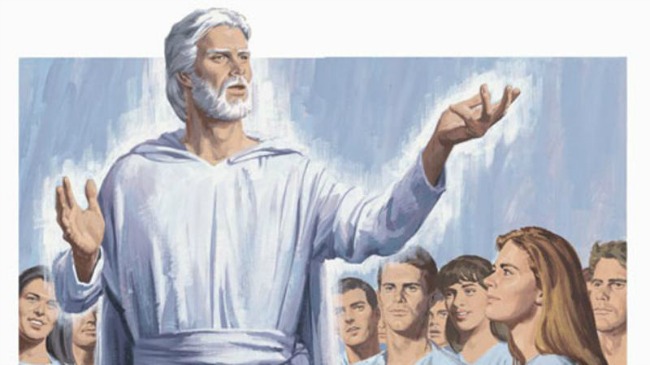Question
Gramps,
I just read your answer to the justice and mercy conundrum. As you cited in your answer about justice and mercy, the commonly told story about a loan owed and a third party stepping in to pay the loan then granting forgiveness of the loan to the original borrowers etc. Question. I am assuming that justice demands a given price for a given sin and it will demand no more. Jesus paid for the sins of all mankind therefore paying off justice completely. Yet mercy, will be extended only to those who repent. (D&C 19 is very straight forward on this) So if we have someone who does not repent they must “suffer even as I” (section 19) to pay for the sin they failed to repent of. Hence we have Christ paying for the sin and then the unrepentant paying for the very same sin a second time. Justice has been double paid. What I am missing here? Have you ever heard this addressed before? If so please point me in the right direction. If not please let me know.
Gerry
Answer
Gerry,
Your inquiry is intriguing in the idea that I have not had this question addressed before; however, the words of Alma (Alma 42:13-15), provide adequate information for us to discover an answer to your question. Verse 13, Alma reiterates the doctrine that justice isn’t satisfied without repentance. We also recognize, verse 14, that due to the fall all of humankind they were within the demands of justice, unless (verse 15) a way was prepared for the sons and daughters of Adam and Eve to fulfill justice’s demands — via the atonement.
As we consider the atonement, the Lord’s mercy and grace, we begin to recognize how our God has provided “the means” for justice to be satisfied — not that justice has been paid or appeased. When a person repents, the means God has provided (the atonement) appeases the demands for justice and justice is then paid. Without repentance, the means is unable to apease the demands of justice and justice as a result is still left unfulfilled, or unpaid. The atonement is our means to satisfy justice and mercy, if a person repents. If a person chooses not to repent, then justice is still unpaid, although the means have been and were provided.
If we continue to follow the analogy of a creditor we recognize that our creditor must be paid. We also recognize, alone and by ourselves, we do not have the means to pay our debt. We do not have the means to satisfy or appease the demands justice is entitled to. We are truly fallen and are lost. However, in God’s great knowledge and insight, he has provide a way, the means, for us to satisfy and pay for the demands of justice. As such, the atonement has been offered to pay for the demands of justice and also to fulfill the law of mercy. In order for us to have access to this means (the atonement) God has invited us to enter into a covenant with him. If we accept the covenant, and repent, we now have access to the means provided. If we don’t repent, we do not have access to the means provided and we are left to pay for justice ourselves. Justice in either scenario is only paid once, either by ourselves or via the atonement.
Gramps







